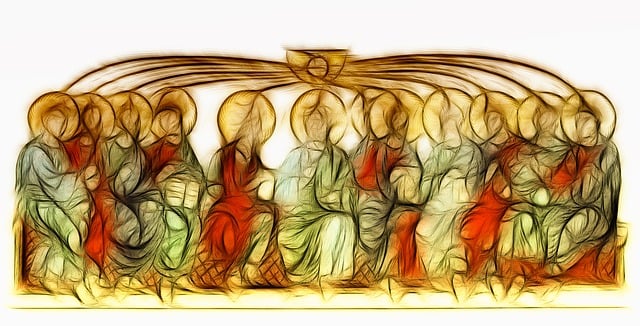Pentecostals pray through a variety of methods, including speaking in tongues, fervent prayer, and laying on of hands. They believe in the power of the Holy Spirit and emphasize a personal and direct relationship with God.
Table of Contents
The Power of Speaking in Tongues in Pentecostal Prayer
Pentecostalism is a vibrant and dynamic branch of Christianity that places a strong emphasis on the power of prayer. One of the distinctive practices of Pentecostals is speaking in tongues, which is believed to be a direct manifestation of the Holy Spirit. This article will explore the power of speaking in tongues in Pentecostal prayer and shed light on how Pentecostals engage in this unique form of communication with God.
Speaking in tongues, also known as glossolalia, is the ability to speak in a language unknown to the speaker. Pentecostals believe that this gift is given by the Holy Spirit and is a direct form of communication with God. It is seen as a way to bypass the limitations of human language and connect with the divine on a deeper level. When Pentecostals pray in tongues, they believe that the Holy Spirit is interceding on their behalf, praying the perfect will of God.
The practice of speaking in tongues is rooted in the biblical account of the Day of Pentecost, where the Holy Spirit descended upon the disciples of Jesus, enabling them to speak in different languages. This event marked the birth of the early Christian church and is seen as a powerful demonstration of the Holy Spirit’s presence and power. Pentecostals view speaking in tongues as a continuation of this miraculous event, a way to experience the same spiritual empowerment that the early disciples had.
For Pentecostals, speaking in tongues is not just a random babbling of sounds. It is a spiritual language that is understood by God, even if it is not understood by the speaker or those around them. It is a form of prayer that goes beyond the limitations of human understanding and taps into the supernatural realm. When Pentecostals pray in tongues, they believe that they are allowing the Holy Spirit to pray through them, expressing the deepest desires and needs of their hearts.
Speaking in tongues is often accompanied by other manifestations of the Holy Spirit, such as prophetic utterances, healing, and deliverance. Pentecostals believe that these manifestations are evidence of the presence and power of God in their midst. They see speaking in tongues as a gateway to experiencing the fullness of the Holy Spirit’s work in their lives.
In Pentecostal prayer services, speaking in tongues is a common practice. It is not uncommon to hear a chorus of voices praying in tongues simultaneously, creating a powerful and awe-inspiring atmosphere. Pentecostals believe that when they pray in tongues together, they are united in the Spirit and are able to tap into a higher level of spiritual intimacy with God.
While speaking in tongues is a central aspect of Pentecostal prayer, it is not the only form of prayer practiced by Pentecostals. They also engage in traditional forms of prayer, such as praying in their native language, interceding for others, and offering thanksgiving and praise to God. Speaking in tongues is seen as an additional tool in their prayer arsenal, a way to access a deeper level of communion with God.
In conclusion, speaking in tongues is a powerful and integral part of Pentecostal prayer. It is a unique form of communication with God that allows Pentecostals to bypass the limitations of human language and connect with the divine on a deeper level. While it may be misunderstood or even controversial to some, for Pentecostals, speaking in tongues is a cherished and transformative practice that brings them closer to God and empowers them to live out their faith.
Understanding the Role of the Holy Spirit in Pentecostal Prayer

Pentecostalism is a vibrant and dynamic branch of Christianity that places a strong emphasis on the role of the Holy Spirit in the life of believers. One of the key aspects of Pentecostal worship is prayer, which is seen as a powerful means of connecting with God and experiencing His presence. In this article, we will explore how Pentecostals pray and the significance of the Holy Spirit in their prayer life.
When it comes to Pentecostal prayer, one of the first things that stands out is the fervency and passion with which it is offered. Pentecostals believe that prayer is not just a religious duty, but a personal and intimate conversation with God. They approach prayer with a sense of urgency and expectancy, believing that God is actively listening and responding to their petitions.
Central to Pentecostal prayer is the belief in the baptism of the Holy Spirit. Pentecostals believe that this experience, which is often accompanied by speaking in tongues, empowers believers to pray in a supernatural and spiritual way. They see the Holy Spirit as the divine helper who intercedes on their behalf and enables them to pray according to God’s will.
In Pentecostal prayer, there is a strong emphasis on surrendering to the leading of the Holy Spirit. Rather than relying solely on their own understanding and desires, Pentecostals seek to align their prayers with the will of God. They believe that the Holy Spirit guides and directs their prayers, helping them to pray in accordance with God’s purposes and plans.
Another distinctive aspect of Pentecostal prayer is the practice of laying on of hands. This is a physical act where believers lay their hands on someone and pray for them. Pentecostals believe that through this act, the power of the Holy Spirit is transmitted to the person being prayed for, bringing healing, deliverance, and spiritual breakthroughs.
Pentecostals also place a strong emphasis on corporate prayer. They believe that when believers come together in unity, their prayers are more powerful and effective. This is why you will often find Pentecostal churches holding prayer meetings and prayer vigils, where members gather to intercede for various needs and concerns.
In Pentecostal prayer, there is a recognition of the supernatural and miraculous. Pentecostals believe that God is able to intervene in the natural world in response to their prayers. They expect to see signs, wonders, and miracles as a result of their faith-filled prayers. This belief in the supernatural power of prayer fuels their passion and persistence in seeking God’s intervention.
It is important to note that while Pentecostals place a strong emphasis on the role of the Holy Spirit in prayer, they also value the other elements of prayer, such as praise, thanksgiving, and confession. They believe that prayer is a holistic expression of their relationship with God, encompassing all aspects of their spiritual journey.
In conclusion, Pentecostal prayer is characterized by fervency, surrender to the leading of the Holy Spirit, and a belief in the supernatural power of prayer. Pentecostals approach prayer with passion and expectancy, seeking to align their prayers with God’s will. They value both individual and corporate prayer, recognizing the importance of unity in prayer. Pentecostals believe that through the power of the Holy Spirit, their prayers can bring about supernatural breakthroughs and manifestations of God’s power.
Exploring the Practice of Laying on of Hands in Pentecostal Prayer
Pentecostals have a unique way of praying that sets them apart from other Christian denominations. One of the practices that is commonly seen in Pentecostal prayer is the laying on of hands. This practice holds great significance for Pentecostals, as it is believed to be a way of imparting the power of the Holy Spirit onto the person being prayed for.
When Pentecostals pray, they often gather in small groups or in church services. They believe in the power of communal prayer, where believers come together to lift their voices and hearts to God. This sense of unity and togetherness is an important aspect of Pentecostal prayer, as it creates an atmosphere of faith and expectancy.
The laying on of hands is a physical act that accompanies prayer in the Pentecostal tradition. It involves one person placing their hands on another person’s body, usually on the head or shoulders, while praying for them. This act is seen as a way of connecting with the person being prayed for and channeling the power of the Holy Spirit through physical touch.
Pentecostals believe that when hands are laid on someone, the power of the Holy Spirit is transferred to them. This power is believed to bring healing, deliverance, and spiritual breakthroughs. It is seen as a way of activating the gifts of the Spirit and releasing God’s power into the lives of believers.
The laying on of hands is not limited to pastors or church leaders. In Pentecostal churches, it is common for any believer to lay hands on others during prayer. This practice is based on the belief that all believers have been given the authority and power to pray for others and see miracles happen.
During the act of laying on of hands, Pentecostals often pray out loud, speaking words of blessing, healing, or encouragement over the person being prayed for. These prayers are often spontaneous and led by the Holy Spirit, rather than pre-written or scripted. This allows for a sense of authenticity and personal connection in the prayer.
The laying on of hands is not just limited to physical healing. Pentecostals also believe in the power of laying hands on someone for emotional healing, deliverance from spiritual bondage, or receiving the baptism of the Holy Spirit. It is seen as a way of inviting God’s presence and power into every area of a person’s life.
In Pentecostal prayer, the laying on of hands is often accompanied by other practices such as speaking in tongues, anointing with oil, or prophetic utterances. These practices are seen as additional ways of connecting with God and allowing His power to flow through the prayer.
Overall, the practice of laying on of hands in Pentecostal prayer is a powerful and significant aspect of their faith. It is a way of physically connecting with God’s power and inviting His presence into the lives of believers. Whether it is for physical healing, emotional restoration, or spiritual breakthroughs, Pentecostals believe that the laying on of hands is a tangible way of experiencing God’s love and power in their lives.
The Importance of Intercessory Prayer in Pentecostal Worship
Pentecostalism is a vibrant and dynamic branch of Christianity that places a strong emphasis on the power of prayer. For Pentecostals, prayer is not just a religious duty or a ritualistic practice; it is a vital and transformative experience that connects them with God and allows them to experience His presence in a tangible way. In Pentecostal worship, intercessory prayer holds a special place, as it is seen as a powerful tool for spiritual warfare and a means of seeking God’s intervention in the lives of individuals and communities.
Intercessory prayer is a form of prayer where believers pray on behalf of others, lifting up their needs, concerns, and desires to God. It is a selfless act of love and compassion, as Pentecostals believe that through their prayers, they can make a difference in the lives of others and bring about positive change. This type of prayer is not limited to specific individuals or leaders; rather, it is encouraged for all believers to engage in, regardless of their age or status within the church.
When Pentecostals pray, they often do so with great fervor and passion. They believe in the power of the Holy Spirit to guide and empower their prayers, and they seek to be led by Him in their intercession. This is why Pentecostals often engage in what is known as “praying in tongues.” Praying in tongues, or glossolalia, is the practice of speaking in a language that is unknown to the speaker but is believed to be a form of communication with God. It is seen as a way for the Holy Spirit to intercede on behalf of the believer when they do not know what to pray for or how to express their deepest desires.
In addition to praying in tongues, Pentecostals also place a strong emphasis on praying with faith and expectancy. They believe that God is not only able to answer their prayers but that He desires to do so. Therefore, when they pray, they do so with a confident expectation that God will hear and respond to their petitions. This belief in the power of prayer is rooted in their understanding of the Bible, where they find numerous examples of God’s faithfulness and His willingness to answer the prayers of His people.
Another important aspect of Pentecostal prayer is the practice of laying on of hands. This is a physical act where believers place their hands on someone in need of prayer, often accompanied by anointing them with oil. This act is believed to be a way of imparting God’s healing and blessing upon the individual, as well as a means of expressing solidarity and support. It is a tangible way for Pentecostals to demonstrate their love and care for one another and to invite God’s intervention in their lives.
In conclusion, intercessory prayer holds a significant place in Pentecostal worship. It is a powerful and transformative practice that allows believers to connect with God, seek His intervention, and make a difference in the lives of others. Through praying in tongues, praying with faith and expectancy, and engaging in the laying on of hands, Pentecostals demonstrate their deep reliance on God and their commitment to loving and serving one another. Prayer is not just a religious duty for Pentecostals; it is a way of life, a means of experiencing God’s presence, and a powerful tool for spiritual growth and transformation.
Conclusion
In conclusion, Pentecostals pray in a charismatic and expressive manner, often involving speaking in tongues, fervent worship, and a strong belief in the power of the Holy Spirit.
For licensing reasons, we must provide the following notice: This content was created in part with the help of an AI.


